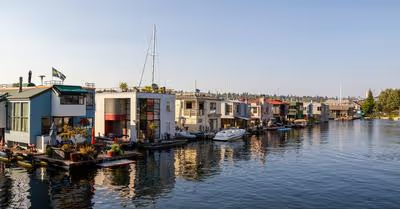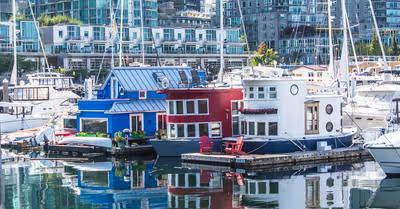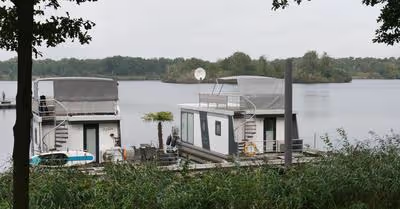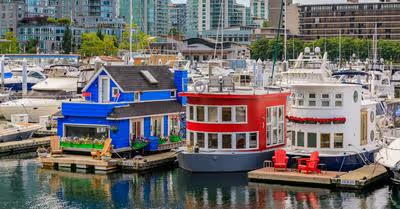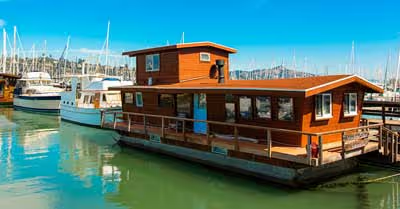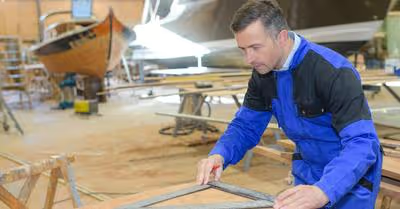
Any real boat enthusiast may at some point wonder if they can build their own boat, and the answer is going to be dependent on a few factors.
Those of us who love our boats may at some point think about building one on our own. Or, maybe the cost of these vessels is a bit prohibitive for your budget and you’d like to try your hand at building your own. In either case, it can be done as long as you think about certain things in advance.
You can build your own boat if you have the right tools and resources to do it yourself, buy a boat-building kit, follow the correct governmental standards, and have the time, money, and patience to do so.
Creating something from scratch is a dream that many of us have, especially if we like working with our hands and saving some money in the process. But building something like a boat can be a daunting task, if you haven’t planned ahead and thought through what may be necessary to make this happen. Luckily, I’ve taken the guesswork out of the equation for you, so you can figure out how to make this dream happen.
There are two things I’m pretty excited about: boating and do-it-yourself projects. The idea of building my own boat came to me a few years back, and I spent a good amount of time researching if this was even a possible option for me. Let me give you some things to think about, so you can decide if building your own boat is a possibility for you as well.
Can I Build My Own Boat?
Long before there were shipyards and shipbuilders, boats were made by hand. In fact, the first recorded hand-made boats were built by ancient Egyptians as early as 4,000 BC.
Back then, boats were extremely basic, and the main purpose they had was to move materials, transport people, and not sink.
Today, we’ve come a long way, but many of the basic factors are still at play. Every day, when it comes to building a boat that can carry cargo, transport people, and stay safe and afloat, we are using similar designs to what they were using back then.
Our boats have become much more sophisticated, but still need to be able to do these same, basic things. Of course, other needs have also arisen, as the world has changed a lot since ancient Egypt!
If you’ve decided you’d like to try your hand at building your own boats, there are certain things to consider and also try. Let’s dive deeper into what those things are.
1. Do You Have the Right Tools and Resources to Do It Yourself?
Before you dive into a project like building your own boat, it’s important that you think through the various steps and logistics to make this happen.
In order to build your own boat, it’s going to require a fair amount of materials, tools, time, and skill. Boat building is a skill and will take some time to master, if you want to be able to do it correctly.
For example, you’ll need the space to not only build the boat, but to house the materials needed to make it all happen. From table saws to sanders to areas to cure the wood, a decent amount of space must be available for a boat to be built from scratch, and completely from the ground up.
But it can be done. There are plenty of websites, manuals, and instructional books that can guide you through the process and help you purchase the tools and materials needed to build the vessel you want.
This is a particularly viable option for someone who already has a workshop, outdoor garage space, or area where they have already engaged in do-it-yourself projects before.
If you are someone who is already handy with their hands, then building a boat yourself may be much less intimidating than it would be for others.
There are also courses available online that can walk you through the process, and some cities even have in-person instruction, depending on where you live.
2. Buy a Boat-Building Kit
If you have the space and the desire to build your own boat, but aren’t sure you want to go it completely alone, another excellent option is to buy a boat building kit.
Boat building kits have gained in popularity over the past few years as people have found themselves having a deeper desire to create something of their own, with their own hands, from the ground up.
That said, many people don’t have the time, full workshops, or the necessary tools to build a boat without some sort of assistance when starting such a daunting project.
This is where boat-building kits come in.
Though you will still be responsible for the majority of the configuration and assembly, some of the early “heavy lifting” will be done for you before the pieces even arrive at your construction site.
Boat-building kits are still not for the faint of heart, or the person who loses interest – or patience – easily.
But the advantage to using a boat-building kit is that much of the decision-making is taken out of your hands.
Various pieces of your boat will arrive pre-cut and pre-measured, and there will be clear instructions as to what you must do at each step in order to ensure you have a boat that is safe, comfortable, and exactly what you hoped it would be.
3. Follow the Correct Governmental Standards
Any vessel that is going to be allowed and cleared to set sail on public waters will have to pass certain governmental standards in order to be allowed to legally sail through open waters that are considered national or international waters.
The United States Coast Guard is the governing body in the United States that regulates what you can and can’t do when building your own boat. This may sound intimidating, but the truth is, their regulations are not that unrealistic and are easy to meet, if you want to build a boat that is safe and unsinkable.
There are certain criteria that are especially important to the U.S. Coast Guard. Safety clearly ranks high.
They want to make sure that any craft you create on your own is not only capable of navigating the waters in which you intend to use it, but that it also is environmentally friendly. You will want to make sure that your boat is environmentally sound for your specific area.
You will also be required to prove that your home-built boat is capable of passing any floatation exercise.
This is a common way for the U.S. Coast Guard to know if a boat can float, regardless of the circumstances that may be presented, and that the boat can perform these same tasks at the time of final inspection, once your boat is fully built and ready to embark on its first voyage.



